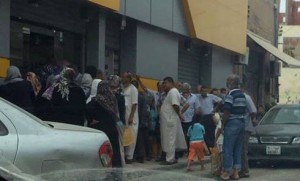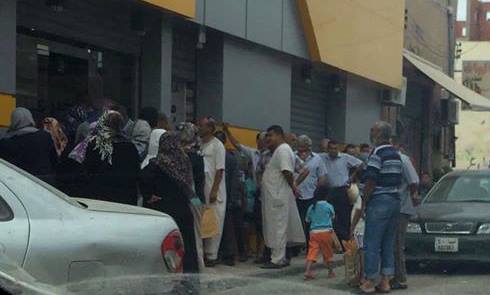By Libya Herald reporter.

Tunis, 4 August 2015:
The return of long power cuts across Libya have made the very hot July and . . .[restrict]August summer months ‘’even more unbearable’’ a Tripoli resident told Libya Herald.
The power cuts which had ‘’stabilized at one stage to ‘acceptable’ three to four hours’’, had now moved to ‘’10, 12 and even 24 hour shifts’’ one Tripoli resident said.
The power cuts have forced Tripolitanians to spend much of their time out of their homes at public parks, on the corniche and at the beach hiring beach huts along the coast at Sidi Andulsi, Mitiga and Tajura beaches.
‘’We are not in a hurry to get back home as we know that there will probably be no electricity and the house will be like an oven. We try to get back as late as possible so that we are so tired we will drop to sleep despite the heat’’ Salwa told this newspaper.
The power cuts have as usual had their knock-on effects with some electric bakeries unable to bake their bread, petrol stations unable to pump their petrol out of their tanks and mobile phone masts unable to transmit. The lack of internet has also meant that Libyans are posting and reading less on social sites.
Power cuts also affect water pumps and have led to a shortage of diesel due to high usage for generators.
Domestically, fridges and freezers have had to have their contents discarded and households are forced to shop little and often, another housewife said.
Power cuts have been a permanent feature of Libya ever since the damage sustained to electricity infrastructure during and since the 2011 revolution. The inability of the electricity company to compel the mostly armed Libyan public into paying their bills, the profligate use of power, the springing up of new buildings without prior planning permission, have all been factors that have compounded the power cuts.
However, the country’s insecurity and its political split have been the biggest contributors. Local maintenance staff have often been attacked by armed men and foreign engineers refuse to travel to Libya to carryout essential maintenance.
On the other hand, the ‘’interim’’ Libyan governments do not have the mandate to initiate large projects such as power plants lest they are accused of corruption. The crash in Libya’s oil production to about a quarter of its post 2011 peak of 1.5 million bpd as well as the crash in international crude oil prices has also meant that the state is suffering consecutive budget deficits. [/restrict]









